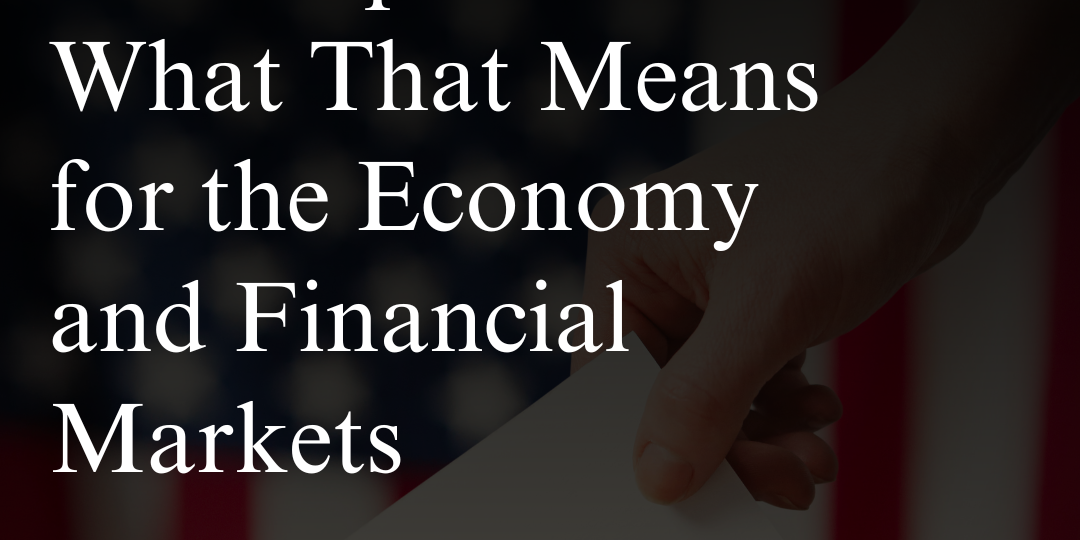
An increasingly likely Donald Trump victory in this week’s presidential election could trigger a significant shift in the country’s economic environment. Driven primarily by his protectionist approach to economic policy, the former president will prioritise American manufacturing and national security, renewing his focus on tariffs and trade restrictions. This approach, aimed at reducing reliance on foreign nations, particularly China, could have a mixed effect across financial markets.
Opinion polls indicate a close race between Donald Trump and Kamala Harris. However, the former president’s success will hinge on undecided voters and key swing states. Voters’ concerns over longer-term inflation, immigration, and economic security means his platform could resonate beyond his usual demographic, to those voters concerned about economic resilience and national security.
Trump’s protectionist stance stems from a view that the global trade dynamic hurts American industry and workers, with the latter also being adversely affected by the current administration’s perceived lack of control on the border. During his previous term, Trump enacted policies to incentivise domestic production and imposed tariffs on billions of dollars of Chinese imports, aiming to strengthen American manufacturing and reduce trade imbalances. Today, a similar strategy would likely mean higher tariffs, more subsidies for American businesses, and renegotiated trade agreements.
While protectionism can bolster domestic industries, it risks retaliatory tariffs from trading partners, which can in turn spark inflation. This was the case during the 2018-2019 US-China trade war, which led to increased import costs for American businesses and consumers, contributing to inflationary pressures. Over the longer-term, a decoupling from global trading partners would mean a smaller market and less competition, which often also leads to inflation as businesses acquire greater pricing power. This inflationary impact would influence the Federal Reserve’s already precariously balanced monetary policy, with the FMOC (Federal Open Market Committee) tasked with bringing down the cost of borrowing to secure a “soft landing” (meaning that economic growth and jobs do not suffer), without reigniting inflation. However, higher prices over the longer-term would necessitate sustained higher interest rates, impacting the ability of consumers and businesses to borrow, and also having serious implications for national debt, which the US currently spends an estimated $1.1 trillion per year to service.
Interest rates have been a hot topic in recent years, with policy makers often split over the appropriate method of “normalising” rates as the world has dealt with higher inflation following the supply-chain constraints caused by COVID-19. Prior to this, interest rates were held close to zero for a record length of time, creating a fertile economic environment in which stocks enjoyed a record bull run.
Financial markets generally prefer free trade, as open markets allow companies to operate more efficiently across borders. Trump’s return could therefore introduce volatility, particularly in sectors reliant on global supply chains, such as technology, manufacturing and autos. Stocks in these sectors may face pressure due to higher operating costs and potential supply chain disruptions, as well as difficulty of access to overseas consumer markets. This was the case during the last trade war with China, where the S&P 500 index, composed of large multinational corporations, declined 14% in the final quarter of 2018 as investors panicked amid uncertainty over tariffs and trade policy. Over the longer-term, however, US stocks have shown resilience, notching a gain of over 120% in the six years that followed.
Other sectors could however benefit under Trump policies. Defence, energy, and heavy industry align with his “America First” focus. Defence companies, such as Lockheed Martin and Northrop Grumman, would likely benefit from more contracts with Trump’s preference of increased military spending, while oil and gas firms may benefit from deregulation of energy and environmental policies, as well as energy independence. Additionally, small-cap stocks with primarily US-based operations could outperform larger, multinational corporations as they would be less exposed to international tariffs.
Another Trump term would likely have ramifications further afield than the US. As noted in a recent Bloomberg article entitled ‘A European Stock Trader’s Guide to the US Presidential Election’, the European defence, autos and renewables sectors could benefit and suffer in equal measure. Whilst increased military spending would clearly give a boost to European contractors such as BAE Systems and Airbus, a focus on tariffs would significantly increase the cost of importing European automobiles. This would be a significant blow to the likes of Volkswagen, BMW and Porsche, which count the US as a major market. Meanwhile, Trump’s focus on energy independence and deregulation would place greater focus on fossil fuels and limit opportunities for renewables, and companies such as Orsted.
Trump’s economic policies, if successful, could support domestic job growth, particularly in industry, construction and energy. However, protectionism ultimately leads to inflationary pressures, which have implications for monetary policy and borrowing. It also damages global trade and risks weakening international relationships, potentially reducing foreign investment in the US. Trade partners, particularly within the EU and Asia, will eventually pivot to other markets, leading to a reduced flow of foreign capital, dampening the long-term competitiveness of American companies.

